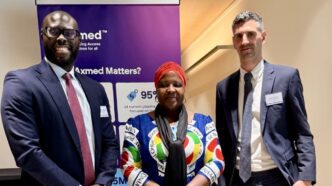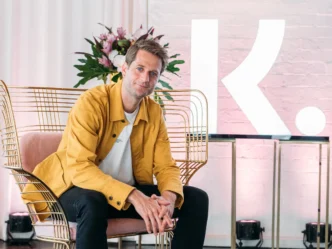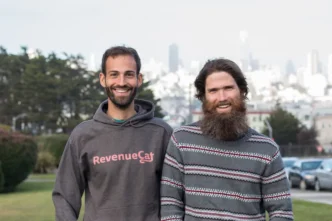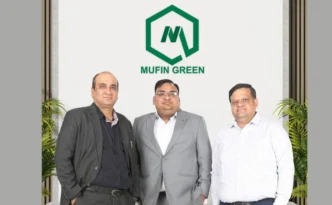In Sub-Saharan Africa, maternal and newborn deaths remain tragically high, even though the tools to prevent them are well known. Every year, over 287,000 women die from pregnancy-related causes, and 2.3 million newborns don’t survive their first month. The region accounts for nearly 70% of all global maternal deaths—with Nigeria and Ethiopia among the hardest hit. Many of these deaths are preventable. But systemic issues—like fragmented supply chains, underfunded health systems, and inefficient procurement—continue to block access to the most essential medicines for mothers and babies. Now, a new partnership between the Bill & Melinda Gates Foundation and Swiss healthtech startup Axmed is tackling this head-on.
At the World Health Assembly in Geneva, the Foundation announced a $5 million matching grant to catalyze up to $10 million in maternal, newborn, and child health (MNCH) medicine procurement across Sub-Saharan Africa.
The grant isn’t just a funding boost—it’s a strategic leap. For every dollar a government spends on MNCH medicines, the Gates Foundation will match it. This provides instant liquidity to Ministries of Health and leverages the power of pooled procurement, which consolidates demand across countries. The result? Greater bargaining power, lower medicine costs, and more secure, efficient supply chains. According to a 2024 UNICEF report, pooled models like this can cut prices by up to 30% and shave weeks off delivery times.
Axmed: A Startup Born from inside the System
Axmed was founded by Emmanuel Akpakwu, Sofia Radley-Searle, and Felix Ohnmacht—a team with deep roots in pharma and public health. Akpakwu, once Chief Commercial Officer for Novartis in Sub-Saharan Africa, saw firsthand the barriers keeping drug manufacturers out of emerging markets. That frustration sparked Axmed’s creation: a tech-driven platform built to simplify and scale healthcare procurement in low- and middle-income countries (LMICs).
Instead of just chasing cheaper prices, Axmed focuses on reliable, transparent access to high-quality medicines. The startup’s board includes former WHO and UNICEF procurement experts, ensuring that what they build works with—not around—existing systems.
Tech Meets Impact in a Smarter Marketplace
Axmed operates a digital procurement marketplace that directly connects governments, UN agencies, and NGOs to vetted pharmaceutical suppliers. It bypasses the legacy middlemen, unlocking efficiency and clarity. Ministries of Health can place orders through the platform, which then aggregates regional demand to unlock bulk pricing.
In 2024, buyers using the platform saved an average of 20–30%, with some MNCH categories seeing up to 80% discounts. The secret isn’t just pooling orders—it’s smart forecasting. Axmed’s AI-powered analytics predict demand, optimize stock levels, and prevent both overstock and dangerous shortages.
The system goes further. By integrating logistics providers—like Zipline, which uses drones to reach rural clinics—Axmed offers end-to-end delivery tracking, from warehouse to remote health post. That last-mile visibility is critical in regions where delays can be deadly.
So far, the platform has enabled $15 million in medicine procurement and reached over 2 million women and children in six African countries. With fresh funding and government partnerships in progress, that number is set to grow quickly.
Why Axmed Stands Out
What makes Axmed different isn’t just the tech—it’s the full-stack approach. From financial structuring to regulatory compliance to last-mile delivery, the platform is built for scale and resilience. Unlike traditional procurement, which is often slow and opaque, Axmed brings speed, transparency, and accountability.
The Gates Foundation’s 1:1 matching fund amplifies this by solving a key problem: many governments lack upfront capital. By doubling local procurement budgets in real time, the fund removes that barrier while encouraging long-term reform in procurement infrastructure.
Emmanuel Akpakwu sums it up well: “Our goal isn’t just faster and cheaper access to medicines. It’s to build smarter procurement systems that last.”
With the Gates Foundation as a backer, Axmed’s immediate goal is to unlock $10 million in MNCH procurement. But the team’s long-term vision goes much further. They aim to become the go-to procurement platform for LMICs globally, covering not just maternal health, but vaccines, chronic disease treatments, and more.
Future pilots are already in the works for Southeast Asia and Latin America. And as global donor funding tightens, tech-enabled platforms like Axmed offer a way to do more with less—delivering impact where it matters most.
Cynthia Mwase, Director of Health, Africa, at the Gates Foundation, put it plainly: “This partnership ensures life-saving innovations reach the communities that need them most—so that more families experience healthy pregnancies, safe births, and strong starts to life.”
Dr. Loko Abraham, CEO of Rwanda Medical Supply, echoed that urgency: “This matching fund helps us reach the most vulnerable, faster. It’s a new way to reimagine procurement—smarter, faster, and built to deliver results.”
In a world where access to basic care is still a matter of life or death, Axmed’s approach could redefine how health systems work—and who they work for.













